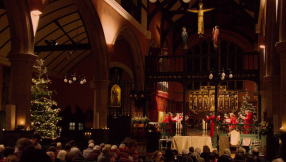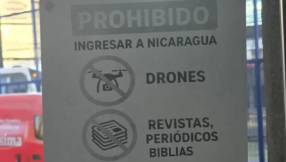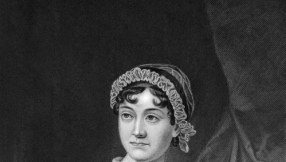Orissa Christians: We will not renounce our faith
The Living Letters team travelled recently to Kandhamal district in the eastern Indian state of Orissa to show solidarity with the victims of the violence that broke out following the murder of a hard-line Hindu leader in August last year. Hindus blamed Christians for the killing even though Maoist rebels publicly claimed responsibility for the murder.
Following the swami’s death, Hindu mobs attacked Christians, burning their homes, shops, churches and orphanages. At least 60 Christians were killed, according to the Orissa government’s report, but church leaders in Orissa say the figures were higher and accuse the government of intentionally undercounting the number of deaths.
About 4,500 Christian homes were burnt down and 180 churches destroyed. More than 30,000 Christians from Orissa were forced to take shelter in refugee camps for many months.
The Living Letters team of eight representatives from churches around the world visited one of the remaining Christian-supported relief camps in the Kandhamal region.
Living Letters are small ecumenical teams that visit areas of conflict to listen, learn, to share approaches in overcoming violence, and to pray together for peace in the community and in the world.
Some of the camp residents told the Living Letters team that they had begun to rebuild their homes, but added they were afraid to return to their villages permanently in case of further attacks. The refugees had been told that unless they renounced their Christian religion, the extremists would not allow them to return.
“We have been providing blankets, saris and mosquito nets to the relief camp nearby,” said Sam Naik, director of Happy Valley Children’s Home in the Kandhamal district.
“We had two medical camps also. The people in the camp have the hope that once the government pays compensation, they are going to rebuild their houses and settle down in their villages. They are very strong in faith and have continued to hold worship."
Many of the Christians face problems with rebuilding their homes due to a shortage in funds, according to the team.
Although the Indian Government has pledged some financial aid, the forum reported that not all victims had received the money legally entitled to them and that it fell short of what was needed.
The Orissa United Christian Forum told the visiting team that it had committed to providing additional financial support to help Christians rebuild their homes. Forum members reported that 300 houses had already been rebuilt with its aid.
Father Manoj Kumar Nayak from the Bhubaneswar Archdiocese said a committee had been set up in every village to ensure rebuilding work was completed. Father Ajaya Kumar Singh from the Kandhamal Response Programme said legal work was continuing in order to ensure justice was done in the courts and witnesses were protected.
“Many groups have responded to the crisis situation, including the government, but I think the churches have done a lot,” said Rama Hansraj from Catholic Relief Services. “Much work has been done in the district to help the victims go back home.”
“By God’s grace, the situation is calming down in Kandhamal and work is in progress,” said Bishop Samson Das of Cuttack Diocese. But there are still villages where peace and harmony has to be worked out.
“The legal aspect is a huge challenge for us,” he added.
The Living Letters team said ecumenical organisations and NGOs had also started running community projects designed to foster amicable relationships between Hindus and Christians in Kandhamal.
The Living Letters team consists of Karen Burke from the UK, Diana Fernandes dos Santos of Brazil, Rev Edwin Makue from South Africa, Rev Gerard Willemsen from Sweden and Bishop Dr G Dyvasirvadam, from Church of South India.













